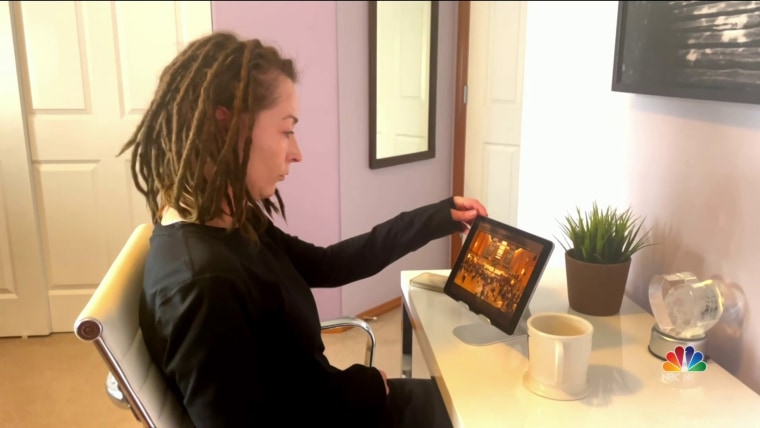A local judge in upstate New York resigned in May after a state agency opened an investigation into Facebook posts that allegedly conveyed anti-LGBTQ and anti-Muslim bias and showed favoritism toward law enforcement.
That same month, a domestic relations judge in Alabama was temporarily removed from the bench after state judicial investigators accused her or someone on her behalf of using fake Facebook accounts to harass litigants who had cases in her court.
And a now-former chief district court judge in North Carolina was censured in June for “inappropriate conversations and relationships” with dozens of women he had messaged through Facebook, while also exchanging “indecent photographs” and using court breaks and recesses to make contact.
Each case highlights a judge who appeared to run afoul of ethics guidelines by using social media in ways that state oversight commissions said could taint the credibility of their offices, betray public confidence and call into question their impartiality regardless of whether they were posting on a private account to a few close friends or in a public forum.
While the frequency of which judges are accused of breaching online ethics protocols is not regularly tracked, a review of dozens of these cases reveals a serious lapse in judgment among many of them, which judicial ethics experts believe is being stoked, in part, by the nation’s political divide and the pervasiveness of social media.
Each states’ judicial ethics board has written codes of conduct for judges to follow, but most don’t expressly address social media norms of today nor account for shifting technologies, said Agnieszka McPeak, an associate professor of law and director of the Center for Law, Ethics and Commerce at Gonzaga University School of Law in Spokane, Washington.
States generally follow the American Bar Association’s “model code of judicial conduct,” which does not specifically mention social media norms. The association also offers nonbinding guidance from 2013 that says if judges use “proper care” when they opine online, they can avoid compromising their integrity. On the federal level, a planning resource for judicial employees’ social media use was devised in 2010 and warned that “nothing is ‘private’ on the Internet.”
While the discovery of improper and even lewd social media behavior has helped to expose problem judges, particularly when they’re off the bench, McPeak said, now would also be a good time for states to revisit their guidelines and give more clarity.
“The norms are different now than when these guidelines first came out,” McPeak, who has studied the pitfalls of social media use among judges and lawyers, said. “We have more polarization in this country, and we are nudged to communicate quickly without really thinking, which makes using social media even more perilous for judges.”
The Center for Judicial Ethics at the National Center for State Courts, a nonprofit organization that seeks to improve the judiciary, has examined cases in which judges were rebuked for expressing views on controversial topics or endorsing political candidates. Some of the judges used private accounts, while others did not attempt to hide their judicial affiliations.
“All of the judges in these cases acquiesced in the sanctions, often expressing remorse, apparently recognizing on reflection that thoughtless clicking and virtual outbursts by judges can damage the judiciary’s reputation,” the center said.
The cases include a criminal court judge in the Memphis, Tennessee, area who was publicly reprimanded in 2019 for making partisan statements by sharing images on his Facebook account that were critical of several issues and people, including former presidential nominee Hillary Clinton, athletes kneeling during the national anthem, the Black Lives Matter movement, fatal shootings by police, transgender bathroom policies, and undocumented immigrants and voting.
While advocacy groups complained that the judge, Jim Lammey, was treating Hispanic defendants differently by requiring those who were undocumented and on probation to report to U.S. Immigration and Customs Enforcement, the commission cleared him of making racist or anti-immigrant statements and said it found no proof that he showed bias toward anyone appearing before his courtroom.
Still, he agreed that he would refrain from posting statements on social media that could be perceived as prejudiced or biased, as well as consented to making all of his social media platforms private. Lammey remains on the bench, and did not return a request for comment.
In other examples:
- A circuit court judge in Tennessee was publicly reprimanded in October — and narrowly dodged a 30-day suspension — after admitting to sending multiple women flirtatious and sexual messages through social media from an account that featured a picture of him in his judicial robe.
- A municipal judge near Albany, New York, was admonished in November for posting memes that implied former President Bill Clinton had killed Jeffrey Epstein, the accused sex trafficker who died by suicide in jail, and compared Facebook removing offensive material to that of Nazis burning books.
- A family court judge in West Virginia was admonished in February for using Facebook to discuss current events, including negative remarks related to a state lawmaker who recorded himself at the Jan. 6 attack at the U.S. Capitol.
- A district judge in central Minnesota was reprimanded in March after a judicial review found he had “liked” Donald Trump’s Facebook page and disparaged then-presidential candidate Joe Biden in a comment.
In some cases, judges chose to retire or resign before they were subject to an investigation while in office.
Former District Court Judge C. Randy Pool retired in late 2019, a year and a half before the North Carolina Judicial Standards Commission wrapped up an investigation and issued a censure for alleged inappropriate communications with at least 35 women on Facebook, with his online activity appearing to occur when he was supposed to be on the clock, according to the ruling, which was released last month.
Pool, who is married and had been in his position for more than 12 years as part of an otherwise “distinguished” career, was remorseful, according to the commission’s ruling, and “has also undertaken significant efforts to determine the cause of his sexual misconduct and to address the problems in his personal life.” He did not return a call seeking comment.
Over the past year, a handful of state courts, judicial commissions and judicial associations have issued advisory opinions that can serve as guiding principles for utilizing social media — and warn judges they face sanctions, such as a reprimand or even a rare removal from office, for violating ethics rules.
The California Judges Association wrote that while it’s OK for judges to leave reviews on crowd-sourced sites like Yelp and Tripadvisor and use the “like” function, it shouldn’t be done in a way that leaves the impression they’re using the power of their office to endorse something or that it’s part of their official capacity.
The Colorado Judicial Ethics Advisory Board advised judges against using social media to “express support for or to protest current political issues.”
Judge Stephen Dillard, who sits on the Court of Appeals of Georgia, said the hazards of social media shouldn’t dissuade judges from using it, and if employed correctly, it can provide an outlet for judges to connect with constituents while demystifying what they do. With more than 19,500 followers on Twitter, Dillard shares scenes from the courtroom and his chambers, but also his taste in music and sports teams, and occasionally, offers personal reflections.
Last fall, he helped create his own best practices for social media in a paper he co-authored with Chief Justice Bridget McCormack of the Michigan Supreme Court. He told NBC News that more guidelines would only be helpful.
“There are plainly topics that judges should avoid altogether,” Dillard wrote. “But posting about issues that do not compromise impartiality and independence can enhance public trust in judges and the judiciary.”
Source: | This article originally belongs to Nbcnews.com











